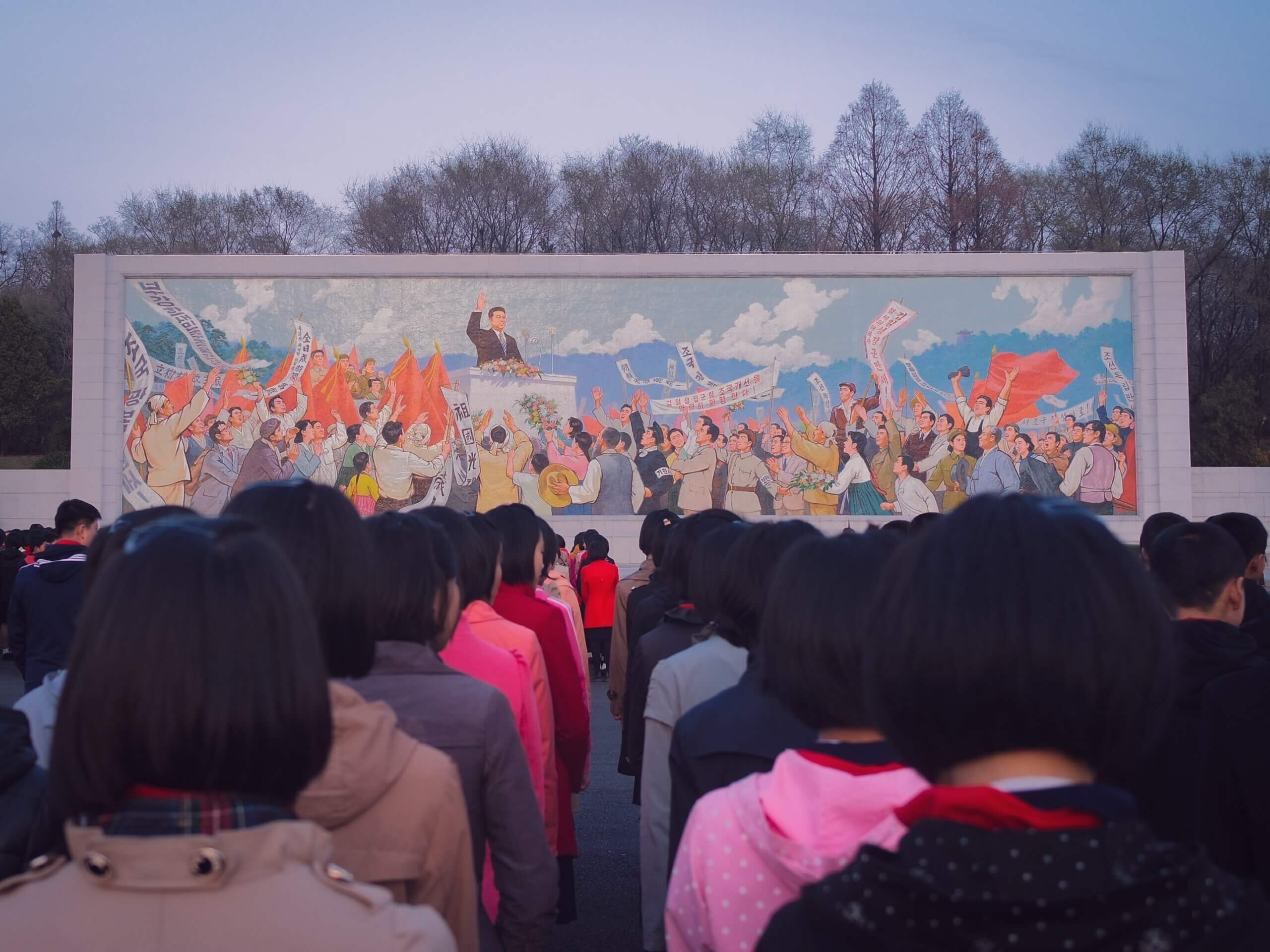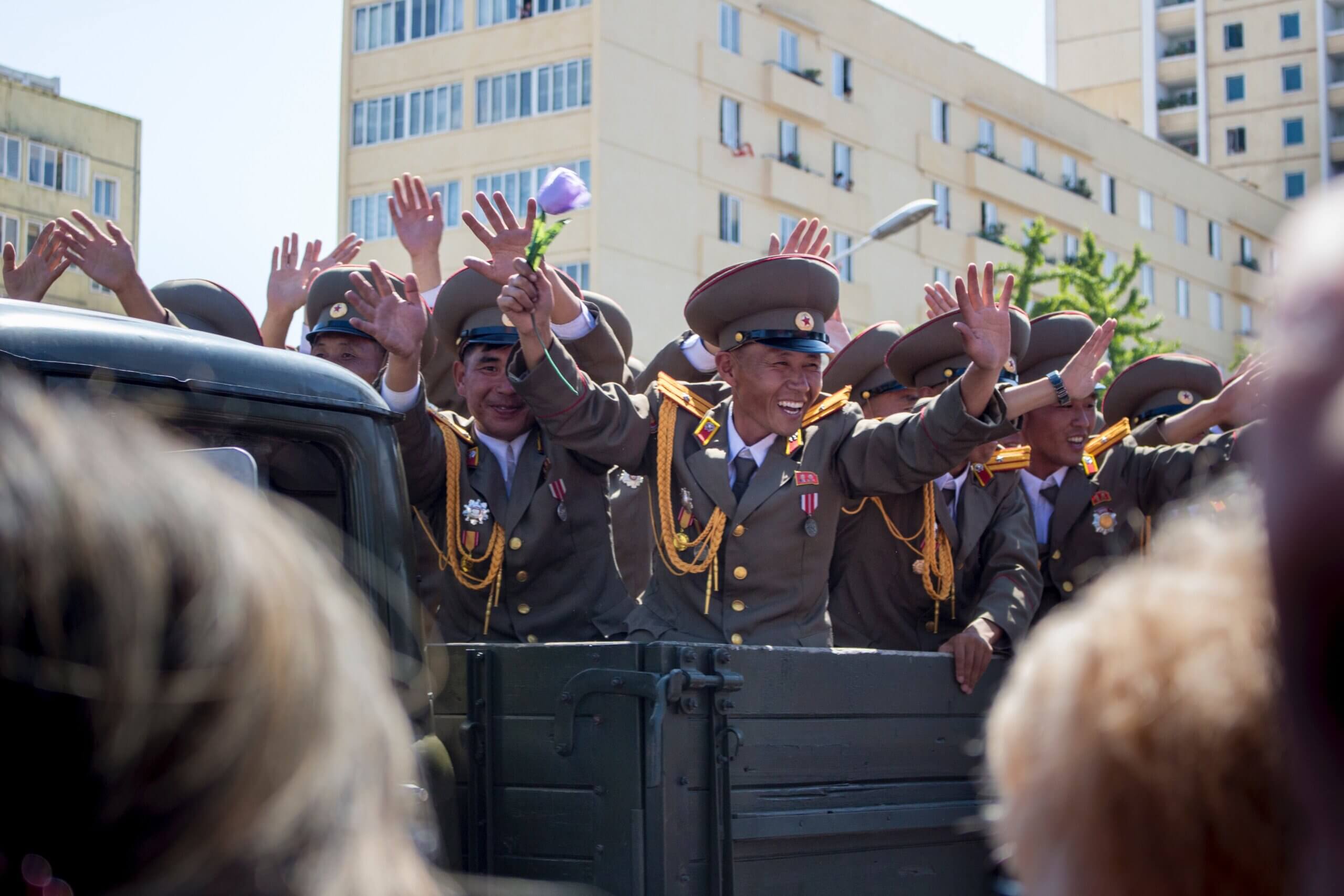However powerful, ideological rhetoric cannot be the only tool through which an authoritarian leader can forge its legitimacy and political rule in the long term. As a matter of fact, as proved by the North Korean defectors’ accounts, ideological disenchantment is starting to spread. With the recent leakage of information from the outside world — as a consequence of the increasing economic relations with China through the
cross-border trade and the distribution of Hollywood and South Korean entertainment products through
informal markets — there is a tendency toward general scepticism of the “facts” propagandized by the leaders. In this respect, enlightening are the words of
Hannah Arendt on the delineation of propaganda and ideology mechanisms, affirming that the success of totalitarian propaganda on popular consent is strongly determined by
the coherence and cohesion of the political system:
“ True goal of totalitarian propaganda is not persuasion, but the organization of the polity. [...] What convinces masses are not facts, and not even invented facts, but only the consistency of the system of which they are presumably part. ”
In this respect, the Kim Dynasty represents the perfect example: although their rule was punctuated by problems and threats determined by both internal and external forces, the leaders have proven capable of maintaining their dominion and assuring political stability through the reliance on a strong and steady system that met the compliance of both the elite and the masses: the
songbun caste system.
First ratified by the Great Leader Kim Il Sung in the 1960s and pursued by his successors, the songbun is a political system that labels the North Korean population according to their state devotion. The belonging to an established social class is determined by two factors: one’s origins (namely, the socio-political background of their entire family) and one’s individual socio-political behaviour and performance. According to this system, people are thus categorized as ‘loyal’, ‘wavering’, or ‘hostile’, and their affiliation to one or the other caste is determined by investigations carried out by the government. Moreover, the caste dictates every aspect of North Korean social and working life: employment, food rationing, medical treatment and place of residence; everything is determined by one’s songbun.
The
songbun system undoubtedly is one of the key features that help to explain Kims’ durable triumph. First of all, it is in all respects an
effective measure of social security. The large scale investigations implemented through the system indeed provide the regime with updated screenings of the North Korean population, successfully identifying those who could constitute a threat to the regime and must be rooted out through political purges. Furthermore, the ‘labelling’ of North Korean society also dampened the people’s counterrevolutionary spirits, made vulnerable to the threat of drastic punitive measures (which include a
generational punishment in the event that an individual was guilty of disloyal behaviour) and the demotion to a lower class and the consequent loss of fundamental rights.
By the same token, the songbun system also underpins the institutional structure which
made the Kim regime ‘coup-proof’. The North Korean inner circle is indeed comprised of a
tightly-controlled selectorate elite that includes military leaders, party officials, and bureaucrats; and this elite forms the so-called “core class”, whereby its loyalty to the Kim regime is rewarded through significant privileges in every aspect of life. The elite obviously occupy the highest ranks within the political and military system, and they are appointed to positions that sustain and protect Kim’s rule.
Despite co-optation not being unique to North Korea as a strategy for the maintenance of political stability, it is however interesting to highlight how
the bribery of the core class has enabled the Kim Dynasty to survive for three generations. This was obviously possible thanks to the meaningful measures taken by the leaders during their rule. Most notably, every transfer of power from father to son has witnessed a
political purge, where the closest associates of the previous leader are removed in order to ensure the political dominance of the current Kim in power. This is a stance that has a great impact both politically and ideologically, in the intention to assert, once again, that the power belongs to the ruling Kim and no one else.
Therefore, I agree with the Political Science professor
Van den Bosch in identifying the Kim regime as a “personalist” state: despite the common thinking, the DPRK cannot be conventionally classified either as a party-state nor as a military-state, but as a “
highly personalized regime that in which both the party and the military apparatus has been coup-proofed and instrumentalised to keep the Kim family in power”. And, in my estimation, therein lies the triumph of the Kim dynasty.



